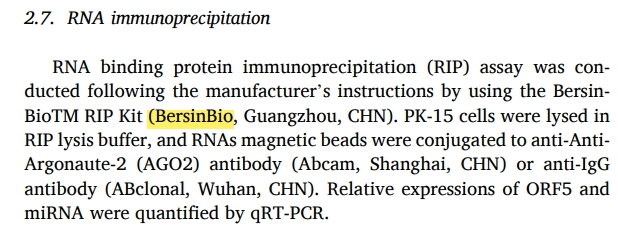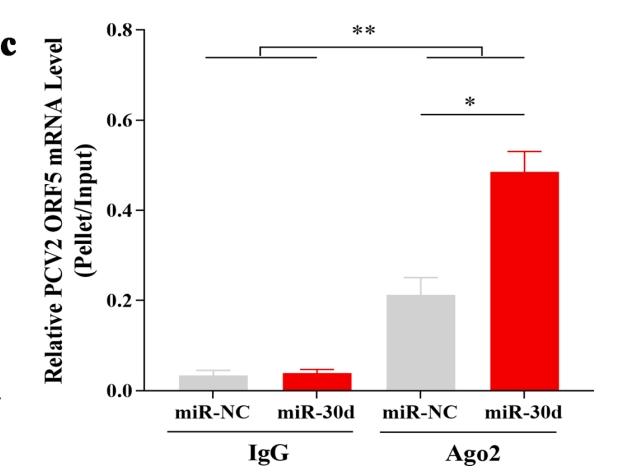Toggle Navigation
Time of publication:June,2024

Summary
Porcine circovirus type 2 (PCV2) infection leads to multi-system inflammation in pigs, and this effect can be achieved by upregulating host miR-21. The underlying mechanism of miR-21 regulates PCV2-induced inflammation is already known, however, how PCV2 regulates miR-21 levels and function using both autonomic and host factors remains to be further revealed. Here we present the first evidence that PCV2 ORF5 induces an inflammatory response by up-regulating miR-21 level through targeting nuclear miR-30d. In this study, we found that overexpression of ORF5 significantly increased miR-21 level and promoted the expression of inflammatory cytokines and activation of the NF-κB pathway, while ORF5 mutation had the opposite effect. Moreover, the differential expression of miR-21 could significantly change the pro-inflammatory effect of ORF5, indicating that ORF5 promotes inflammatory response by up-regulating miR-21. Bioinformatics analysis and clinical detection found that nuclear miR-30d was significantly down-regulated after ORF5 overexpression and PCV2 infection, and targeted pri-miR-21 and PCV2 ORF5. Functionally, we found that miR-30d inhibited the levels of miR-21 and inflammatory cytokines in cells. Mechanistically, we demonstrated that ORF5 inhibits miR-30d expression levels through direct binding but not via the circRNA pathway, and miR-30d inhibits miR-21 levels by targeting pri-miR-21. In summary, the present study revealed the molecular mechanism of ORF5 upregulation of miR-21, further refined the molecular chain of PCV2-induced inflammatory response and elucidated the role of miRNAs in it.
Partial results of cooperation


BersinbioTM cooperative technology:RIP
Original link:10.1016/j.virusres.2024.199396